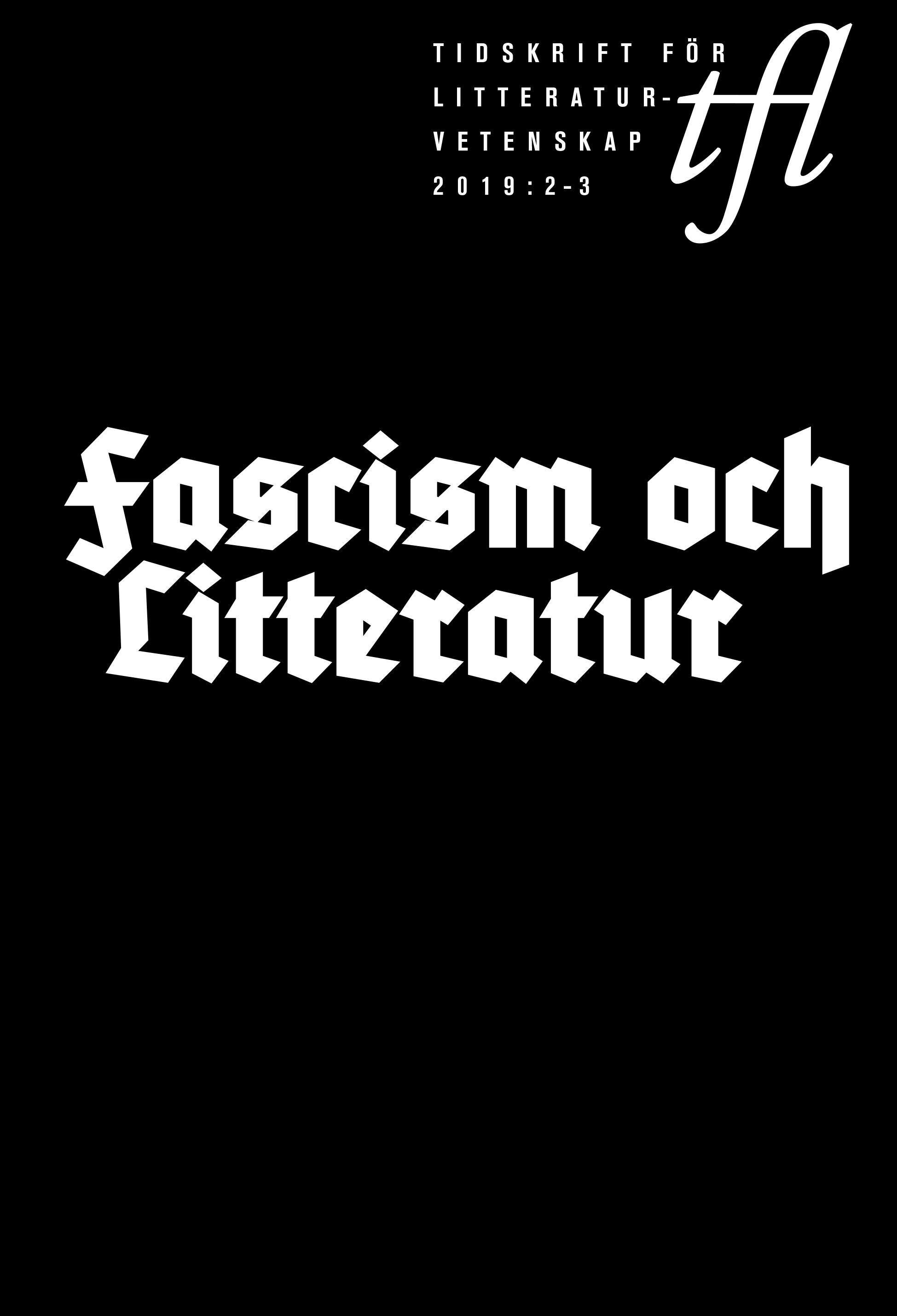Fascisten som anti-fascist
Teratologen, kritiken och litteraturen som vara
DOI:
https://doi.org/10.54797/tfl.v49i2-3.6634Nyckelord:
Teratologen, textualitet, kommodifiering, Flashback, fascismAbstract
The Fascist as Anti-Fascist. Teratologen, Literary Criticism, and the Literary Commodity
The present article takes as its point of departure the debate that ensued when anti-racist magazine Expo revealed that Swedish writer Niklas Lundkvist (a.k.a. ”Nikanor Teratologen”) over several years as ”Ezzelino” had published massive amounts of racist and anti-semitic writings in an online forum. The article suggests that Ezzelino’s ideological stance is in fact detectable in Teratologen’s critically acclaimed literary works as well, and asks why Swedish literary critics have been prone to read the latter as an anti-fascist parody of fascist ideology rather than as an attempt to promote fascist views by rendering them aesthetically acceptable. It traces this inclination to the critics’ adherence to a Barthesian conception of textuality, which delivers the critic from having to think of the author as the historical origin of the literary text. The article goes on to suggest that this textual principle is trumped by the fact that literary texts today appear to us as literary commodities, that is, in a form that re-inscribes the authorial function into the literary text as the very product that is on sale. While critics quite rightly point out that one cannot equate Teratologen with Lundkvist, it is not our understanding of Lundkvist’s intentions that are affected by the revelation that Ezzelino and Teratologen are the same person, it is our understanding of how the Teratologen-commodity functions that changes – or at least, that should change, if we want literary criticism to be a means to resist fascist ideologies.
Nedladdningar
Downloads
Publicerad
Referera så här
Nummer
Sektion
Licens
Författaren/författarna behåller copyright till verket






